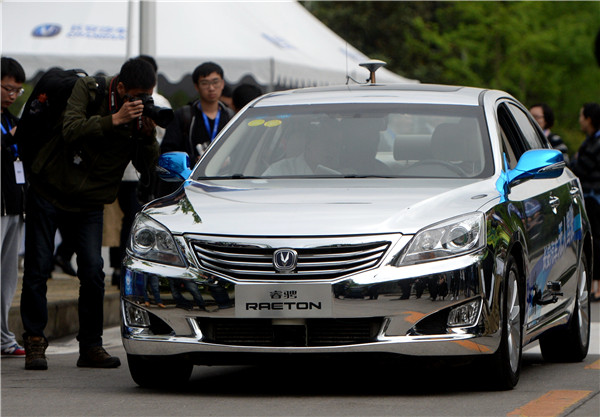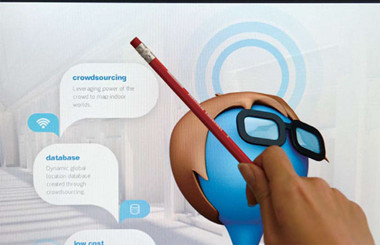Searching for right lane: Baidu hits 'enter' on driverless cars
Updated: 2016-05-18 08:24
By Cheng Yingqi(China Daily)
|
|||||||||
 |
|
The driving force behind the moves to develop driverless cars, irrespective of cost, is the potential profit to be made from China's massive auto market. |
The driving force behind the moves to develop driverless cars, irrespective of cost, is the potential profit to be made from China's massive auto market.
A survey by Boston Consulting Group in April last year showed that China will soon corner more than 25 percent of the driverless car market, which is expected to hit 12 million units globally by 2035.
Meanwhile, a recent report by Roland Berger, a global strategy consultancy, showed that Chinese car owners are much more open to unmanned cars than Europeans and people in the US.
As many as 96 percent of Chinese drivers stating that they would consider an autonomous vehicle for almost all everyday driving, whereas in the US and Germany, the figure was 58 percent.
"Chinese people are probably the world's most adventurous consumers-they are always ready to try new things. Just look at how smartphones swept the country overnight and you can predict what will happen to the market for autonomous cars," said Wang Yong, founder of VVpinche, a cab-hailing company in Beijing based on the model popularized by Uber and Didi Chuxing.
For Wang, who is also a driver, sitting in an autonomous car is no more stressful than driving on a road full of new drivers, because "driverless cars are definitely safer than human drivers".
Cui Rui, co-founder of Jiewo, an app that allows people to share private buses, sees plenty of opportunities in self-driving buses. "In the initial stages, it is more likely that self-driving technologies will be used on vehicles that travel along fixed routes, which will reduce management challenges and offer improved safety," he said.
Wang and Cui both believe that the commercial vehicle sector will be the first testing ground for driverless cars because cab companies are more sensitive to costs-especially labor costs-than individual car buyers.
"Self-driving represents the future, although its commercialization could be difficult at the beginning. If there were some major accidents in the first few years, it would slow down the development of the whole industry," Wang said.
Today's Top News
LinkedIn matches refugees with jobs
Top legislator foresees bright future for SAR
UN climate talks resume to write 'rule book'
Internet regulations: From the US to Australia
Google faces record 3 billion euro antitrust fine
EU lawmakers' rejection of China's MES protectionist
Boris Johnson compares EU to Nazi Germany
China urges EU to honor MES status, despite parliamentary vote
Hot Topics
Lunar probe , China growth forecasts, Emission rules get tougher, China seen through 'colored lens', International board,
Editor's Picks

|

|

|

|

|

|







